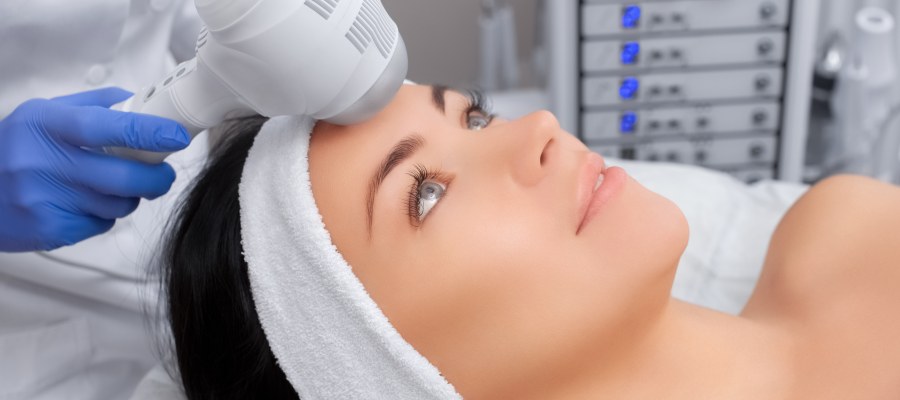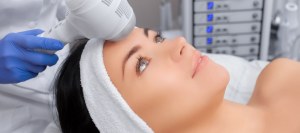Cryotherapy Treatment Specialist in Newington NH
Cryotherapy, which literally means cold therapy, is a minimally invasive technique that involves using extremely cold temperatures to treat specific conditions by freezing and therefore destroying abnormal or diseased tissue. There are many benefits of Cryotherapy for your health and well-being. Learn how our team of healthcare professionals at Seacoast Rejuvenation can help “reboot” your life. Contact us today or visit us online to book an appointment. We are conveniently located at 101 Shattuck Way Suite #1 Newington, NH 03801.


Table of Contents:
What is cryotherapy and how does it work?
What is cryotherapy used for?
What are the benefits of cryotherapy?
What can you expect from a cryotherapy session at Seacoast Rejuvenation Center?
Cryotherapy, which literally means cold therapy, is a minimally invasive technique that involves using extremely cold temperatures to treat specific conditions by freezing and therefore destroying abnormal or diseased tissue. An instrument called a cryoprobe – a needle-like therapy probe, cooled with substances like liquid nitrogen, liquid nitrous oxide, or compressed argon gas – is used for injections into the diseased tissue beneath the skin that is being treated. The intense cold freezes and destroys the targeted tissue, which is then removed. Cryotherapy can also be administered using ice packs, coolant sprays, ice baths, or ice massage. Cryotherapy can treat one specific area, or used to treat the entire body, known as whole body cryotherapy (WBC), which involves immersing the entire person, except their head, in extremely cold air for several minutes. The theory behind cryotherapy is that living tissue, whether healthy or diseased, cannot survive when exposed to extremely cold temperatures and will die. Several steps are involved in the death of a diseased cell, and tumors are typically frozen and then thawed repeatedly before the doctor removes the abnormal tissue.
Cryotherapy is used to treat a wide variety of conditions and can be used on the surface of the skin (topically) for skin and eye lesions, or below the skin surface, in which case a cryoprobe is used, and may require a surgical incision. Some of the more common uses of cryotherapy include the treatment of:
• Skin tumors
• Skin tags
• Nodules
• Pre-cancerous skin moles
• Prostate, liver, and cervical cancers if surgery is not possible
• Retinoblastomas (retinal cancer in children)
• Kidney tumors
• Bone and spine conditions
Athletes commonly use cryotherapy for its ability to numb nerve irritation and pain. A doctor will insert a small probe into the nearby tissue of the affected area, which helps to ease pinched nerves, chronic pain, and acute injuries. Cryotherapy has also been found to be effective at treating migraine headaches by numbing the nerves in the neck area. Studies suggest that patients received significant migraine pain reduction after applying frozen ice packs to the carotid arteries in the neck. This works by chilling the blood passing through the intracranial vessels of the carotid arteries, which are close to the skin surface and accessible.
In addition to the above-noted conditions that are treated successfully using cryotherapy, some additional benefits include:
• Treatment of mood disorders – whole body cryotherapy treatments cause a physiological hormonal response, which releases adrenaline, noradrenaline and endorphins, having a positive effect on mood disorders like anxiety and depression.
• Treatment for arthritic pain – significantly reduces pain, and allows for more aggressive physiotherapy and occupational therapy, and more effective rehabilitation.
• Maybe a preventative measure against Alzheimer’s Disease – while still being researched, it is believed that whole body cryotherapy may be effective at combating inflammatory and oxidative stress responses associated with Alzheimer’s.
• Skin conditions and atopic dermatitis – because cryotherapy can improve antioxidant levels in the blood, and reduce inflammation, whole body cryotherapy can be an effective treatment for atopic dermatitis.
At Seacoast Rejuvenation Center, in Newington, NH, one of our highly specialized healthcare professionals will commonly perform the cryotherapy procedure at the center, on an outpatient basis. Prior to your treatment, your doctor may recommend taking ibuprofen about 30 minutes before the treatment begins to reduce any discomfort, or you may be given an antibiotic to guard against infection. You will be asked about any medications or supplements you are taking, or any allergies you may have, especially if they are to a local anesthetic or any materials used in the procedure. You will also be advised to discontinue use of aspirin or blood-thinning medications.
To determine what type of cryotherapy is needed for your particular situation, send us a text, call Seacoast Rejuvenation Center, or visit our website to arrange your consultation. We serve clients from Newington NH, Portsmouth NH, Durham NH, Newmarket NH, Stratham NH, Dover NH, and Rye NH.

Check Out Our 5 Star Reviews


Additional Services You May Need
▸ Medical Skin Services
▸ Men’s Spa Rejuvenation
▸ Laser Services
▸ Body Services
▸ Spa Services
▸ Sexual Medicine
▸ Mint PDO Thread
▸ Microneedling RF
▸ Opus Plasma
▸ Sculptra Injections
▸ Acne Treatment
▸ Aqua Gold
▸ Botox & Dysport Injections
▸ Chemical Peels
▸ Cryotherapy Treatment
▸ Dermal Filler Injections
▸ Facial
▸ Opus Plasma
▸ Microdermabrasion Treatment
▸ Rejuvapen Microneedling
▸ PDO Thread
▸ The O-Shot
▸ The P-Shot
▸ Glo2 Facial
▸ Brow Lamination
▸ AcuPulse CO2 Laser skin resurfacing
▸ IPL Photofacial

Additional Services You May Need
▸ Medical Skin Services
▸ Men’s Spa Rejuvenation
▸ Laser Services
▸ Body Services
▸ Spa Services
▸ Sexual Medicine
▸ Mint PDO Thread
▸ Microneedling RF
▸ Opus Plasma
▸ Sculptra Injections
▸ Acne Treatment
▸ Aqua Gold
▸ Botox & Dysport Injections
▸ Chemical Peels
▸ Cryotherapy Treatment
▸ Dermal Filler Injections
▸ Facial
▸ Opus Plasma
▸ Microdermabrasion Treatment
▸ Rejuvapen Microneedling
▸ PDO Thread
▸ The O-Shot
▸ The P-Shot
▸ Glo2 Facial
▸ Brow Lamination
▸ AcuPulse CO2 Laser skin resurfacing
▸ IPL Photofacial





